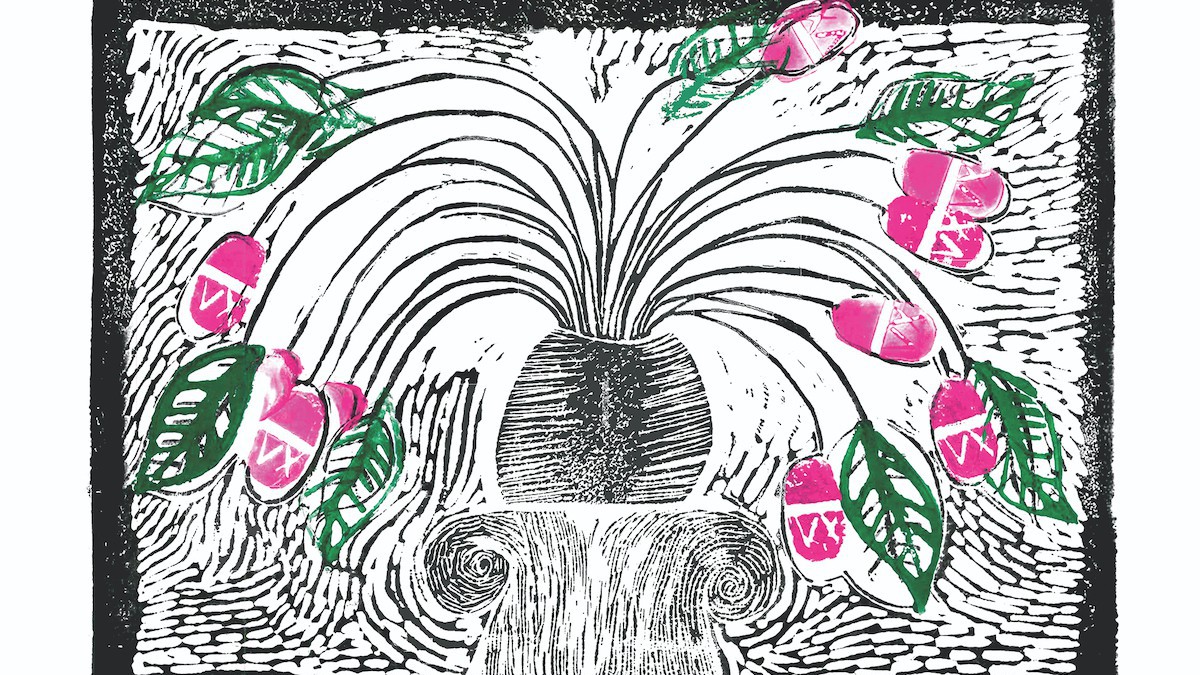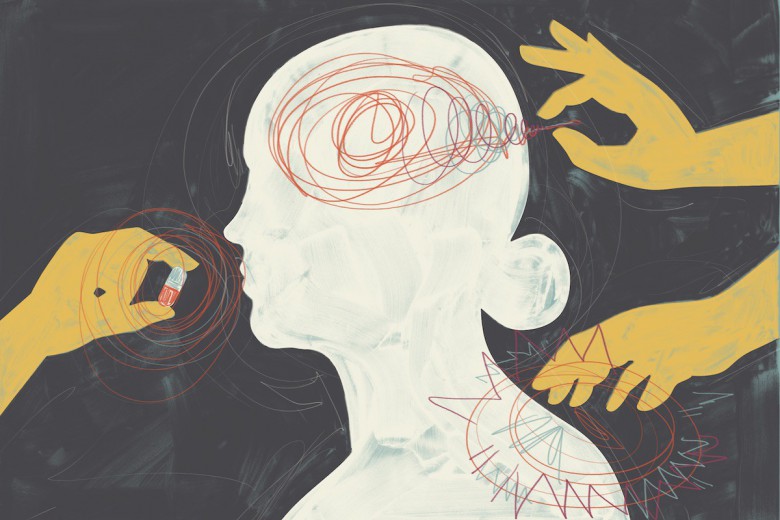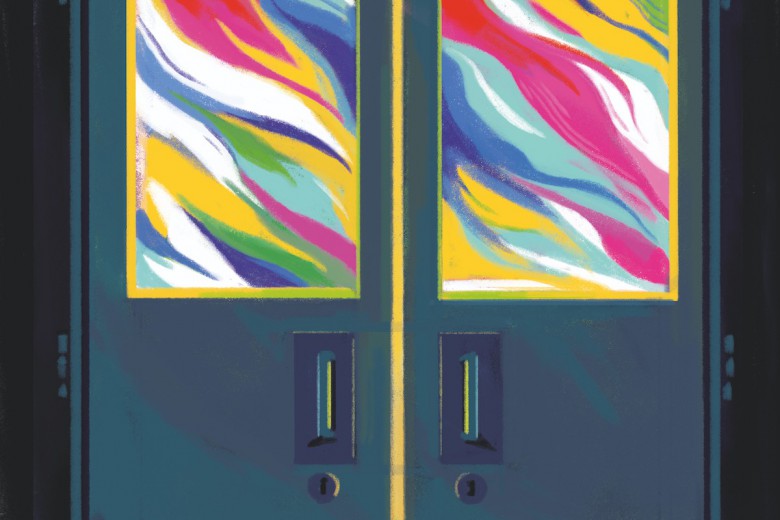Plain language summary (What is this?)
- Professional and popular psychology talk about self-esteem, therapy, and getting better. However, they do not talk about why this is so important. For people in mental distress, the pressure to be “cured” may make their distress worse.
- Psychiatry, psychology, and the behavioural sciences have different ideas about how people feel and think. All these ideas combine to form psy-discourse.
- When society accepts ideas from psychiatry and psychology about the rules and diagnoses around mental distress, it is called psychocentrism. Psychocentrism believes that all human problems come from diseases of the mind and body and that we should aim to cure these diseases.
- During COVID-19, psychiatrists have used psy-discourse to make mourning seem like a disorder.
- In the lives of people who have been diagnosed with a mental illness, accepting psy-discourse can be both good and bad. It can help someone access medication and accommodations. But it can also be used to make people responsible for ending their own distress, when in fact their distress may be caused by unjust social and economic systems outside of their control.
When I was a graduate psychology student, I attended a conference where some of my colleagues presented their research on mental health. They argued that all people are capable of happiness and that a dedication to curing and treatment (through nature walks, exercise, etc.) could be the key to self-actualization – or at least to their most authentic and healthy selves. The idea that money, shelter, and food are necessary for people’s well-being was never mentioned during their presentations.
It was never clear to me why distress is the individual’s fault and why they are responsible for finding a cure for their distress. This pressure to be “cured” is, itself, distressing too. My life with depression might sometimes be challenging, but I believe that part of it is because I am not only encouraged but expected to be cured and, therefore, be productive.
Both professional and popular psychology seem to be committed to self-esteem, therapy, and cure. Still, they are less likely to evaluate why a cure is the person’s responsibility in the first place. This could be due to (at least in part) the prevalence of psy-discourse in Canada.
Psy-discourses
Psychiatry, psychology, and behavioural sciences all advance a variety of beliefs and views about how individuals (ought to) feel and think. For example, the “chemical imbalance model” or bio-essentialism framing of mental distress presents mental distress as caused by faulty or skewed brain chemistry and chemical imbalances. However, biological testing has not been able to conclusively prove this idea.
Society’s reliance on these rules and diagnoses of psychiatry and psychology about disordered pathological thoughts and feelings form what is known as psy-discourse. Psy-discourse is an important part of how psy-experts describe and manage people who may have used mental health services, have cognitive disabilities, or have been harmed by mental health care.
Psy-discourses are particularly useful under neoliberal capitalism because these ideologies also expect people to take personal responsibility for their health, education, and safety – rather than these things being a collective responsibility.
Popular (or pop) psych then distills professional psychological research into simplified and shareable ideas while upholding and perpetuating the same disorder- and cure-focused psy-discourse.
Because of psy-discourse, people experiencing mental distress can feel burdened by the expectation that they must overcome their experiences of distress to be accepted by society. Psy-discourses are particularly useful under neoliberal capitalism because these ideologies also expect people to take personal responsibility for their health, education, and safety – rather than these things being a collective responsibility. Plus, organizations and governments understand that there’s a lot of money to be saved by having workplace mental health intervention plans that aim to limit absenteeism and disability costs, and that push people to be productive workers.
Prolonged grief disorder or pandemic austerity and isolation?
Psy-discourse is expected in a society that prizes individualism and productivity; this idea that pathologies are intrinsic to a person is reflected in how we classify certain behaviours as symptoms of mental illnesses. For example, in the COVID-19 era, when an estimated 15 million people have died from the pandemic, the revised version of the DSM-5 (psychiatry’s diagnosis manual) introduced a new diagnosis: “prolonged grief disorder.”
While most psy-experts (psychologists and psychiatrists) would agree that mourning is a natural response to the loss of a loved one, the DSM-5 now says that when someone grieves for more than a year, they may be diagnosed with prolonged grief disorder. The diagnosis labels a person who experiences – as summarized by scholars Paul Boelen, Maarten Eisma, Geert Smid, and Lonneke Lenferink – “intense yearning or preoccupation, plus at least 3 of 8 symptoms of identity disruption, disbelief, avoidance, emotional pain, difficulties moving on, numbness, a sense that life is meaningless, and loneliness for at least one month, that cause distress or disability, [which] exceed cultural and contextual norms, and are not better explained by another mental disorder.”
Pathologization of mourning is psy-discourse in action: take a distressing event, isolate it from its social and political context, treat the distress as abnormal or unhealthy, and advocate treatment through therapy or medicine. While treatment may appear to be a logical response to distress, psy-discourse establishes a diagnosis such as prolonged grief disorder and then claims that psy-experts are the only people with the power to “cure” individuals of this problem. Does this not seem like circular reasoning?
What’s missing from this look at loss is what’s most important: the things that kept people in grief for more than a year. For example, did the grieving person have a place to live, food, money, and friends during this challenging time? Why do they need to “get over” the many social and political problems that keep them in a state of grief? And is it not true that the most direct way to stop large numbers of people from feeling intense grief is for governments to make policy decisions that protect our loved ones from dying of COVID?
Psy-discourse establishes a diagnosis such as prolonged grief disorder and then claims that psy-experts are the only people with the power to “cure” individuals of this problem. Does this not seem like circular reasoning?
Psychocentrism is a part of why our governments fail to address the social and political causes of distress. Heidi Rimke and Deborah Brock, two social scientists at the University of Winnipeg and York University respectively, came up with the idea of psychocentrism, and define it as “the outlook that all human problems are innate pathologies of the individual mind and/or body, with the individual held responsible for health and illness, success and failure.”
Adopting and engaging with psy-discourse can have benefits for psychiatrized people – a diagnosis can allow someone to see a doctor to help manage mental distress, obtain school accommodations, and so on. People who suffer the worst injustices of our social and economic systems, however – poverty, housing insecurity, racism, misogyny – are held responsible for their own distress and healing. That distress is attributed to something psychologically wrong with them – which, of course, psy-discourse says, can only be remedied by a psy-expert and sometimes psychotropic drugs.
These ableist ideologies are also highly malleable – the definition of disability expands and contracts to allow the government to cut people off from social services and benefits. Significantly, psychocentrism extends to all disabilities. For example, social services continue to use the ideas of disabled people needing to help themselves first as justification to deny people disability benefits, to avoid “benefit cheats,” or the elusive people pretending to be disabled to get social assistance. Psy-discourse and psychocentrism thus serve as “scientific” justifications for governments making disabled people’s lives more austere and challenging.
Medical authority in social control
Psy-experts and their claims of healing mental distress may appear to be mostly harmless – but focusing so much negative attention on people’s mental states can have startling implications in the institutions that adopt it.
In both the past and the present, our culture fixates on marginalized people’s “inside worlds” and psychologies, proposing psy-intervention and justifying surveillance. Doctors have historically been consulted to use their medical authority to manage populations of people deemed problematic. For example, from 1880 to 1969, the Canadian government routinely institutionalized women who were perceived to have mental health issues and were labelled as “feeble-minded” or “incorrigible” if they did not conform to gender norms – these were mostly single women. And beginning in the 1960s, Black men were labelled by psychiatric professionals as having “protest psychosis,” a form of schizophrenia, attributed to their civil rights activism.
The symptoms psy-experts pathologize us with are often natural reactions to two and a half years of a pandemic, to governments that put profits before all else, to colonialism and capitalism. By focusing exclusively on individuals’ distress and responsibility, psy-experts alleviate the state of its responsibility for creating disabling and debilitating circumstances. We must begin to ask not just “how do we recover?” but “what are we recovering from?”







